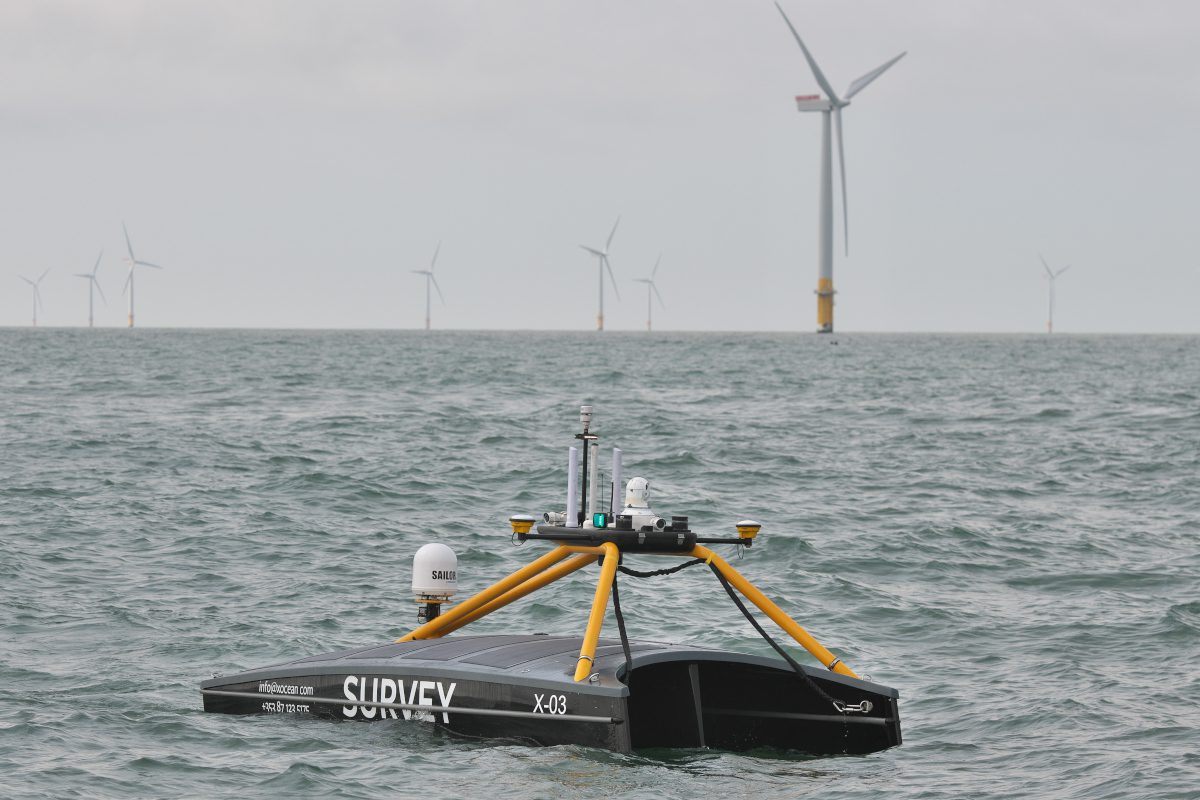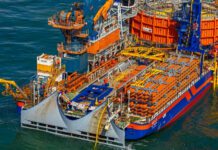
An Uncrewed Surface Vessel (USV) has been launched off the Co. Louth coast to undertake an environmental survey of the seabed. This is seemingly the first time an uncrewed vessel has operated in Irish waters and represents “a major step forward in reducing the carbon footprint associated with offshore survey operations”, according to XOCEAN, the firm behind the uncrewed marine technology.
The project was undertaken in collaboration with Dundalk Institute of Technology (DkIT).
Seemingly a pioneer in uncrewed marine technology, XOCEAN says it has to-date delivered over 100 projects globally for some of the world’s largest companies. In the last 12 months, the firm’s team has grown from 41 to 120 and it plans to recruit 100 additional hires in the next 6 months.
As the firm explains, Ireland is fast-tracking the development of its offshore wind sector in line with commitments to increase offshore wind capacity to 3.5GW as part of the government’s ambitions to deliver 70% of electricity from renewable sources by 2030, and meet the requirements of the 2019 Climate Action Plan. This environmental research survey, utilising multi-beam echo-sounder sensors will be used to characterise the seabed in this area of the Irish Sea.
The company said the USVs score on safety (with operators remaining onshore), efficiency (with 24/7 operations) and environmental benefits (with ultra-low emissions) – and all of this provides economic savings for customers.
The uncrewed vessel is around the size of an average car (4.5 metres) and half its weight (750kg) and “emits just one thousandth of the carbon typically produced by traditional offshore survey vessels”.
“Throughout the survey, a team of qualified mariners and surveyors monitored the USV 24/7 to ensure the safety of navigation and that the highest quality data was collected,” said the firm.
James Ives, CEO of XOCEAN said: “Our USV platform has demonstrated itself to be a safe, reliable and low carbon solution for the collection of ocean data. We are delighted to be working in Irish waters and in collaboration with Dundalk Institute of Technology, on this important environmental project.”
Hildegarde Naughton, T.D. and Minister of State at the Department of Transport, said: “We are constantly looking for innovative ways to promote positive sustainable action on climate change and XOCEAN’s low-carbon approach to delivering marine data in the safest way possible is a very positive step forward.
He praised the firm’s “vision and innovation” and said it created opportunities for the development of sustainable projects such as the preparation of sites and route planning for offshore wind energy
More about XOCEAN’s work and career opportunities is available at www.xocean.com.







